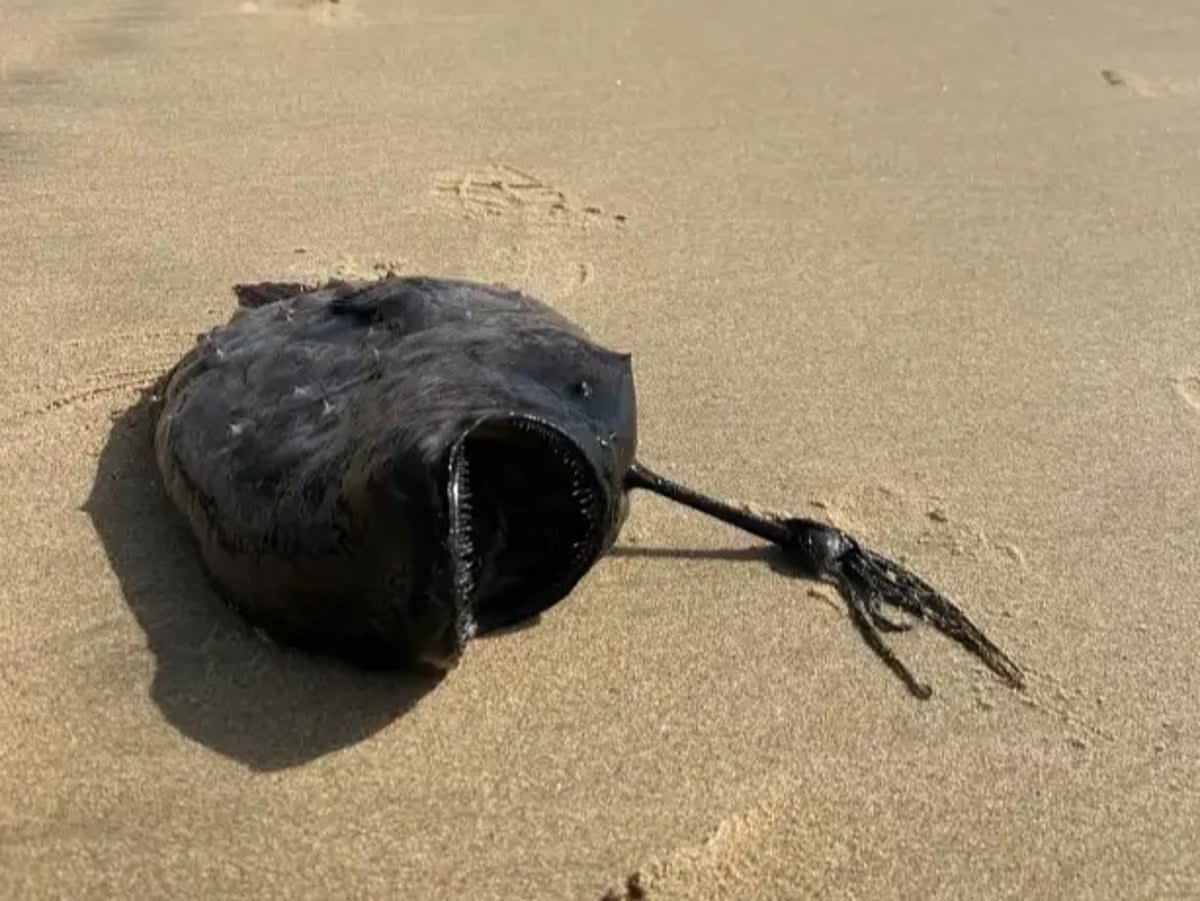Bizarre jet-black ‘monster’ fish washes up on California shore

A rare monster-like fish has washed up on the shores of Crystal Cove Park in California, surprisingly the second one to be found at the park in the past few years.
“Guess who washed up just in time for Friday the 13th?” Crystal Cove State Park wrote on their Facebook page.
The spooky-looking specimen, usually found in the depths of the ocean, was an angler fish species.
The California Department of Fish and Wildlife has taken custody of the fish so they can conduct further research.
The park wrote that seeing one of these fish, especially above water, is very rare, and they do not know why it has washed up onto their shores.
This is not the first time this type of deep-sea creature has paid a visit to the park.
Another angler fish was found on the shore in May 2021 by a visitor at the Crystal Cove State Park.
That fish is now housed at the Natural History Museum of Los Angeles.
Both of these big-teethed creatures are thought to be Pacific Football Fish, this one in particular a female.
“Only females possess a long stalk on the head with bioluminescent tips used as a lure to entice prey in pitch-black water as deep as 3,000 feet,” the park wrote.
“Their large mouth is capable of sucking up and swallowing prey the size of their own body.”
Female Pacific Football Fish can grow up to 24 inches in length, but males only grow to around an inch long, as their sole purpose is to help reproduce, the park said.
Angler fish species can grow to any size between 8 and 40 inches and can weigh up to a massive 110 pounds, according to National Geographic.
Most species of angler fish live in the ocean’s darkest depths, although some live in shallower water in tropical environments.
They are usually dark grey or dark brown and have enormous heads with a mouth full of sharp, translucent teeth.
“Seeing this strange and fascinating fish is a testament to the curious diversity of marine life lurking below the water’s surface in California’s Marine Protected Areas (MPAs),” the park wrote in its post. “As scientists continue to learn more about these deep sea creatures, it’s important to reflect on how much is still to be learned from our wonderful and mysterious ocean.”

